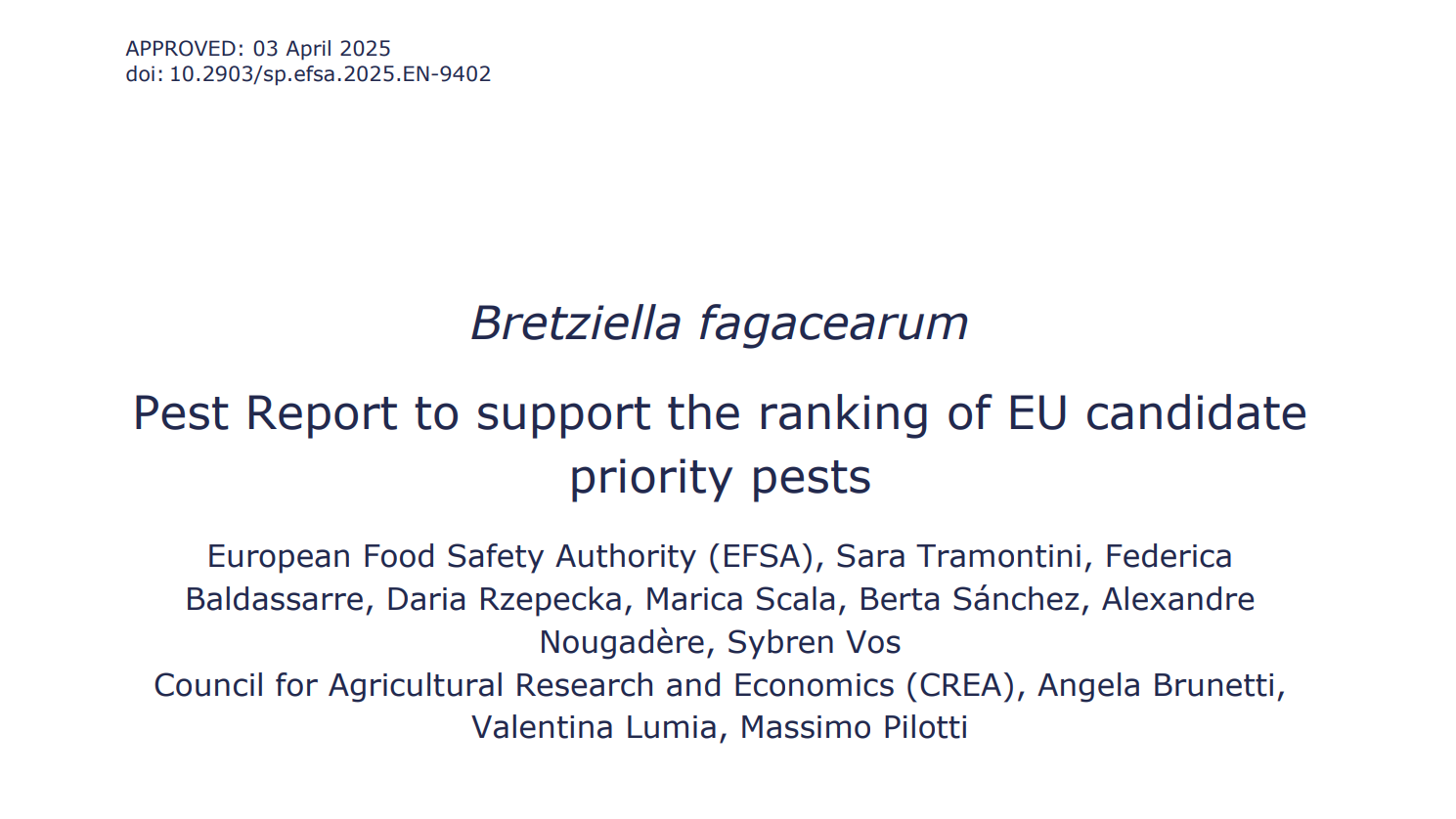Bretziella fagacearum is a fungal pathogen that causes "oak wilt" in trees of the Quercus genus. In the EU, it is considered a quarantine pest with potentially high threat level to oak forests, plantations, and urban plantings.
Key Points:
Distribution:
Currently absent in the EU but widespread in the USA and Canada.
Host Plants:
All oak species (Quercus spp.), with European species (Q. robur, Q. petraea) being particularly vulnerable.
Transmission:
Through root grafts, insect vectors (e.g., bark beetles), and human activities (pruning, wood transportation).
Impact:
Rapid mortality of infected trees (from weeks to years), loss of forestry productivity and biodiversity.
Control:
Limited methods available (e.g., disrupting root connections), as chemical treatments (propiconazole) are prohibited in the EU.
Conclusion:
B. fagacearum could cause significant ecological and economic damage if introduced to the EU, necessitating monitoring and preventive measures.
(Source: EFSA, 2025)







